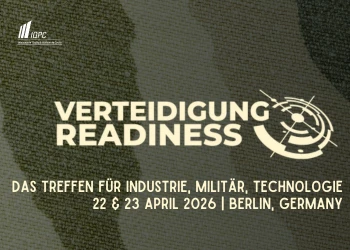Deploying and sustaining EU military operations
Add bookmarkWhen it comes to strengthening the defence supply chain during operations, contractor support has become essential. Brigadier General Dionigi Maria Loria is Director of the European Union Military Staff (EUMS) Logistics Directorate and, at this year’s International Defence Logistics 2017, will be expanding on the issues surrounding the EU Common Security and Defence Policy (CSDP) and the efforts towards fostering deeper cooperation and making best use of multinational platforms.
________________
Defence IQ: How is the EUMS overcoming the general unpredictability of logistics demands and improving its oversight of the entire supply chain?
Brig Gen Loria: EU-led military missions and operations are multinational in nature and in general terms nations employ their own Supply Chains to ensure that their forces are properly supplied. Contractor based logistics; the needs of specific equipment types and broader sustainability issues all add levels of complexity. The Supply Chain elements that are common across all areas remain those of simplicity, oversight and prioritisation. From an EUMS perspective, we seek through concept development to provide an environment that is coherent with the needs of member states without introducing duplicate processes or additional Supply Chain pauses.
In practical terms this is achieved through ensuring that the Operational Headquarters (OHQ) and Force Headquarters (FHQ) maintain strong liaison with national supply chains; transport modes are effective; there is a commitment to standardised IS infrastructures (OPFAS – Operational Functional Area Services – and LOGFAS – Operational Functional Area Services) and finally, contracting within the area of operations is co-ordinated in a coherent, responsible and holistic manner.
[inlinead]
DIQ: In what ways are the EUMS capitalising on new technologies to reduce its logistical footprint? Are there any particular technologies that have been sparking real interest this year?
BGL: The emerging technology that I have greatest focus on are those that complement the Green Supply Chain predominately those aimed at reducing energy consumption, within this sphere we are working closely with the EDA. In terms of Supply Chain benefits energy efficiency would reduce the financial burden and the logistic footprint; minimise the operational risk; enhance operational effectiveness; reduce dependency on vulnerable lines of communication and lastly, help to protect local environmental and public health.
DIQ: What do militaries need to understand when it comes to better integrating contractors into the supply chain, and what are the benefits of this approach?
BGL: Integrating contractors is an ongoing process during military operations and missions in the last decade. Not only NATO-led operation such as ISAF in Afghanistan but EU-led Operations and Missions especially in Africa have shown the increasing relevance of contractors. Today, contractor support is an integral component in both the deployability and sustainability of expeditionary operations. Contract support can be a force multiplier; conversely, there are a number of associated risks that need to be addressed in order to develop mitigation plans.
Contracted support needs to be factored within Crisis Response Planning and coordinated with Troop Contributing Nations during the Force Generation Process. Experience has shown that once operations are launched it is simply too late to reverse engineer multinational logistic solutions, particularly contracting. Therefore, planning of contractor support has to be a deliberate and integral part of the Logistic Planning Process.
Additionally, contracted support may pose risks as well as opportunities for the local populace, therefore to mitigate these risks the impact of contractual support must be a consideration with the Comprehensive Approach.
DIQ: The need for ‘rapid response’ is an increasingly common requirement. How do you think logistics efficiency can be maximized to keep up with the pace of these operations?
BGL: The EU does not have any standing forces as such, however it can request the activation of the EU Battlegroups (EUBG), which are those troops placed on a roster by nations to provide Brigade sized elements for EU operations. The preparation and stand-by phase of this force is a driver for in place logistic solutions like pre-mission contracts, framework agreements and integrated logistics services. This is in turn supported through linkages with strategic movement partners. The real challenge is for those smaller company, battalion and platoon sized movements that need to be made at short notice to meet a significant operational imperative.
The EU does not have access to any military assets such as strategic airlift and, therefore, this has either to be gifted from nations or alternatively contracted for. This latter element adds a high degree of risk, expense and difficulty that perhaps, isn't reflected within national operations where assets are both owned and controlled by national forces. The solution for EU missions remains close and open dialogue with capitals and the maintenance of good linkages with national Ministries of Defence and strategic lift partners.
DIQ: What do you hope to discover at this year’s International Defence Logistics conference? Is there any specific question that you would really like to have answered?
BGL: This year the subject of the EU logistic conference will reflect the newly published EU Global Strategy (EUGS). I personally believe that multinational logistics remains the key to supporting this strategy and at the International Defence Logistics conference my intent is to seek the views of other attendees on what the strategy means to them and how they best see its delivery being supported from a logistics viewpoint. Key to all of this will be the sharing of experiences, listening to fresh ideas and, most importantly, keeping an open mind. I say this because it is very easy for us all to revert to type and our particular niche logistics skillset whereas, the true excitement of a good conference is the ability to have some of your perceptions and ideas challenged and positively informed.
Major General Crenshaw will be presenting a brief at the International Defence Logistics conference on Day One. View the agenda at www.defencelogisticsevent.com.






















